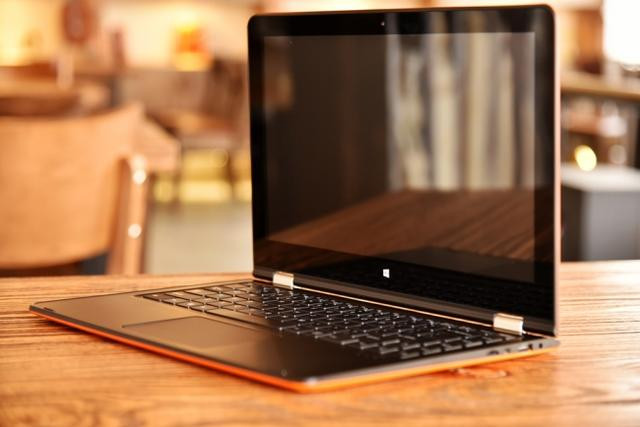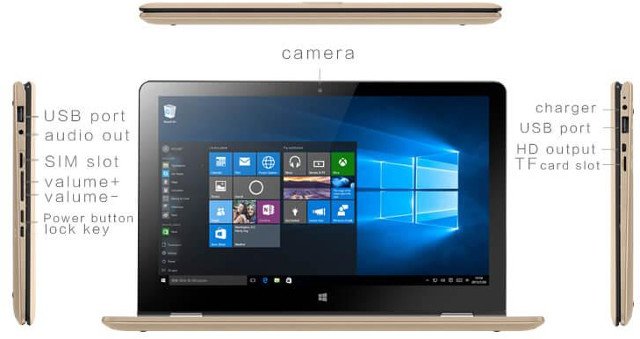Voyo recently introduced one of an Apollo Lake mini PCs called Voyo VMac, and powered by either Intel Celeron N3450 or Pentium N4200 processor combined with 4GB RAM and 32GB eMMC flash + 128 GB SSD storage. The company will soon launch an Apollo Lake laptop based on Intel Celeron N3450 quad core processor with the same 4GB RAM + 160 GB storage configuration, and an 11.6″ display with 1920×1080 resolution.
Voyo VBook A1 laptop specifications:
- SoC – Intel Celeron N3450 quad core “Apollo Lake” processor @ 1.1 GHz / 2.2 GHz (Burst frequency) and 12 EU Intel HD graphics 500 @ 200 MHz / 700 MHz (Burst freq.); 6W TDP
- System Memory – 4GB DDR3L
- Storage – 32GB eMMC flash + 128GB M.2 SSD (Supports dual SSD extension, up to 512GB) + micro SD slot up to 128 GB
- Display – 11.6″ IPS capacitive touch screen with 1920 x 1080 (FHD) resolution; rotatable by 360 degrees.
- Video Output – 1x micro HDMI 1.4 port
- Audio – HDMI, 3.5mm audio jack, built-in stereo speakers and microphone
- Connectivity – Dual band 802.11 b/g/n/ac WiFi, and Bluetooth 4.0.
- Camera – 2.0MP front-facing camera
- USB – 1 x USB 2.0 host port, 1 x USB 3.0 port
- Misc – Power and volume keys, 1x micro SIM card slot, lock key, G-sensor
- Power Supply – 12V DC / 2-3A
- Battery – 12,000 mAh Li-ion battery
- Dimensions – 29.0 x 19.6 x 1.6 cm
- Weight – 1.2 kg
The laptop will run Windows 10 Home, and ship with a power supply and a user’s manual. The laptop appears to be inspired from Lenovo Yoga models, with the expression “YOGA 2-in-1 tablet” being used in the marketing documents, and the hybrid laptop also supports tablet, tent, and stand modes. A SIM card slot is mentioned in the specs and GeekBuying blog post, but somehow 3G / 4G LTE connectivity is not discussed at all anywhere, and it is stated that “this machine has a SIM card slot, but it does not support SIM card to surf Internet or make phone call.”
GeekBuying has started to take pre-orders for $299 including shipping, with delivery scheduled in about 40 days.

Jean-Luc started CNX Software in 2010 as a part-time endeavor, before quitting his job as a software engineering manager, and starting to write daily news, and reviews full time later in 2011.
Support CNX Software! Donate via cryptocurrencies, become a Patron on Patreon, or purchase goods on Amazon or Aliexpress






